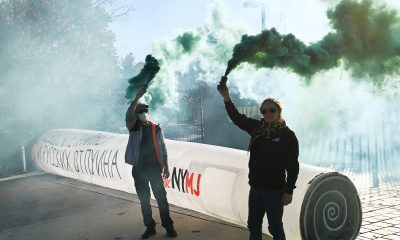Obituary
Medical marijuana hero Scott Tracy Imler has died
Imler battled Bush administration for AIDS, cancer patients
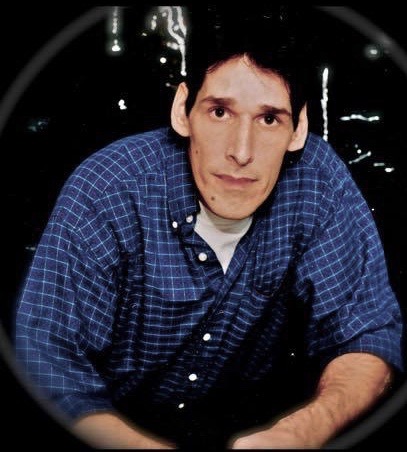

All Photos via Scott Imler’s Facebook page
The announcement was sudden and shocking.
“I am very sad to share with all his friends on Facebook that Scott Tracy Imler passed away this morning here in LA. He died in his sleep. Scott was 60 years old,” his husband George Leddy wrote in an Aug. 10 morning post.
“We have been together for thirty years,” he wrote.
“We were married for nine years. I will miss him very much. We gave each other the best years of our lives. I will post details on his funeral here on his page. Thank all of you who loved him and struggled with him on so many fronts.”
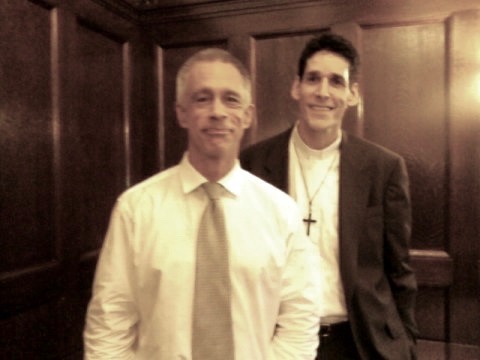
George Leddy and Scott Tracy Imler
West Hollywood Mayor John Duran responded almost immediately, describing how Imler approached the defense attorney—who represented ACT UP/LA and Clean Needles Now—to represent him in trying to establish a reliable center to raise and responsibly dispense marijuana for medical use by AIDS, cancer and other patients with debilitating illnesses. Many had discovered that pot helped fight nausea after chemo treatments and swallowing toxic AZT another AIDS medications, fighting the “wasting syndrome;” it also helped fight glaucoma and epileptic spells, which impacted Imler. But since 1972, the federal Drug Enforcement Administration listed cannabis as the most serious Schedule I drug, with no “currently accepted medical use and a high potential for abuse,” along with heroin, lysergic acid diethylamide (LSD), methylenedioxymethamphetamine (ecstasy), methaqualone, and peyote. Less dangerous Schedule II drugs include cocaine, meth and oxycodone. Imler was very concerned about non-tested pot being sold on the black market.
A Methodist minister, “Scott set up shop as the Pastor at the corner of Fountain and Fairfax in West Hollywood at the Methodist Church. It became the “Sanctuary” for those who wished to receive and use medicinal marijuana,” Duran writes. “Remember this was before Prop 215 legalized medicinal or Prop 64 legalized every day use. This was a time when we used the defense of ‘necessity’ to prevent a greater evil. And it took a lot of work with law enforcement to make it happen,” including West Hollywood Sheriff’s station captains Lynda Castro and @Buddy Goldman, the DA’s office and the City Attorneys. Imler served about 1,000 patients at that church—“the first in Southern California.” The church at Fairfax and Fountain also hosted many AA meetings, and served as the headquarters and kitchen for Project Angel Food and for Coalition for Economic Survival (CES).
Imler subsequently joined with northern California medical marijuana advocate Dennis Peron in writing Proposition 215 that allowed for the legal use of medical marijuana with conditions, that passed in 1996.
One of his last Facebook posts was on Aug. 4, the second anniversary of the passage of Prop 64, which was supposed to close loopholes and “clean up” Prop 215. “Almost 2 years since the passage of Proposition 64, purported legalizing marijuana for adult commercial use and 3 years from the passage of its ugly step-sister the Medical Cannabis Regulation and Safety Act by the Californian State Legislature,” Imler wrote. “While Prop 64 deserves some credit for several important reforms to criminal statutes regarding personal use and cultivation and home cultivation and its social equity provisions in communities adversely impacted by the “war on drugs,” the solely FOR PROFIT provisions of both bills continue to stand COMPASSION on its head. In the category of “Sometimes Less Is More,” the simple and straight-forward 274 words of Proposition 215, passed by voters 22 years ago, stands as a testament of doing the right thing, at the right time, for the right reasons.”
Imler gained a solid reputation for founding and strictly running the not-for-profit Los Angeles Cannabis Resource Center co-op on Santa Monica Blvd near Gardner, a center that came about with help from Duran, the City of West Hollywood and Wells Fargo Bank. Imler was very cautious and rule-driven, screening out would be con artists.
But then came the feds, launching the pot wars from 1998-2004. On Oct. 25, 2001, the heavily-armed DEA raided LACRC with little courtesy notice to West Hollywood sheriffs and local elected officials. This was all the work of right wing US Attorney General John Ashcroft—the Jeff Sessions of his time— who had already raided scores of cause-minded pot-farms around San Francisco and were now cleaning up So-Cal. They wanted to make an example of Imler and since Imler and two others were not allowed to offer a “medical necessity” defense in court, they took a plea and the federal government confiscated LACRC under the “drug asset forfeiture laws” as ACT UP/LA and others staged ongoing protests in a parking lot across the street.
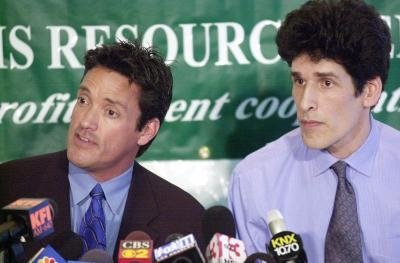
Defense attorney and then-West Hollywood City Councilmember John Duran with Scott Tracy Imler at news conference
“It went all the way up to the US Supreme court where certiorari was denied. So the federal government kept and sold the building at Santa Monica Blvd near Gardner,” Duran recalls. “Scott was prosecuted under federal law but never had to do any time. It was INJUSTICE for Scott and the Cannabis Resource Center family.”
Imler tried to re-establish LACRC, with no luck. And then he ran into head-to-head issues with the Methodist Church, which eventually evicted him. (See his “Fabulous Farewell” below). He and Leddy survived a slew of other problems, including a major close call until Imler was saved by the City of Hope Hospital and a devastating fire that killed their beloved dogs. And while younger LGBT activists may not grasp the power of going up against the heartless federal government at a time when so many were dying of AIDS, anytime the Rev. Scott Tracey Imler was in a room, those who remembered would nod their heads or reach out with hugs to thank him for his brave activism and endurance.
“RIP Rev. Scott. You were my friend. My hero. A warrior for patients and those who were ill,” writes Duran. “You brought such fortitude and color to the City of West Hollywood. A hero in the national AIDS movement. We shall not forget you my dear friend.”
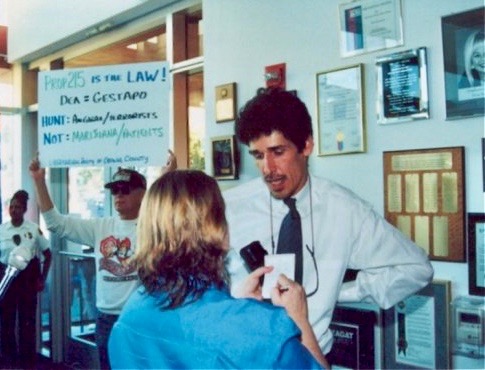
When the Methodists shut down the church, Imler held a Thanks for the Memories: Both Yesterday’s and Tomorrow’s celebration. Here’s the letter Imler sent out as a “Fabulous Farewell and Hello” that talks about so much history during that period of times.
Dear Members, Families & Friends of Crescent Heights United Methodist Church
Greetings, in the name of the Christ of your understanding and in the Spirit of all that is beautiful, loving, and good in the world. I hope you’ve had a wonderful and re-creational vacation season. In the wake of the Annual Conference’s decision to “discontinue” Crescent Heights Church as a local United Methodist congregation, “re-creation” has certainly been the watchword in West Hollywood this summer. As we move through this time of transition and prepare for our final worship service on August 21st, I often times find myself singing the Lord’s Prayer to the tune of Auld Lang Syne, with the list of what might “be forgot” only surpassed by the fond recollections I will cherish forever.
Of course, saying goodbye is never easy, particularly to a 97 year-old hometown institution like Crescent Heights Church. Founded in 1914, Crescent Heights Church grew and came of age alongside an exciting young industry called “motion pictures” and has for almost a century played host to mogul and migrant alike, shining a beacon of hope over both the bountiful harvests of modernity and the fields of broken dreams of those who dared to chase them. As a “room at the inn” for so many of West Hollywood’s community-based programs of wholeness, justice, and compassion, the church has abided in the same spirit of love, healing, and hope upon which the City of West Hollywood itself would come into being some seven decades later.
But sometimes, the “great oaks” of our heritage can dim the light and obscure the forest of new possibilities sprouting in the shade of a storied past. And then, when winter comes and the creeping veil of dormancy presses in from all sides, even those few stalwart leaves clinging mightily to their branches, — that no rain or stormy blast can seem to dislodge — can only bear witness more starkly to a poignant and timeless farewell, that the coming Spring might prosper the emergent life yet to blossom beneath.
It is in that spirit of promise that the remnant “leaves” of Crescent Heights United Methodist Church and it’s “Acorn Choir” take a musical look back — with an eye toward the “new thing” God will do among us at the corner of Fountain and Fairfax — and in that same spirit of new beginnings that we cordially invite you to join former pastors and congregants, musicians and vocalists, civic and community leaders on Sunday, August 21st @ 3 PM, as we give Thanks for the Memories: Both Yesterday’s and Tomorrow’s and celebrate the noble beginnings, the fruitful life, and the latter-days of our beloved little church in the shadow of the Sunset Strip, that never stopped believing “it could.”
After the service you are invited to enjoy refreshments on the back patio at the Sacred Grounds Coffee House: Where Heaven and Earth “Do Lunch”. Friends and supporters wishing share personal reflections, prayers, poetry, or words of wisdom and hope may do so during the celebration or may submit them in writing by for inclusion in the Commemorative Program. RSVPs are greatly appreciated including any special needs or disability seating requests and can be lodged by e-mail at: [email protected] or by Voicemail @ 323-572-5221
With our deepest thanks for your love and support over these many years . . .
. . . Grace and Peace in God’s Service,
Pastor Scott
Scott emailed me this addendum:
As for the long-term future, I don’t know. The Hollywood UMC / P.A.T.H. proposal for a homeless facility is still on the table. I was told that if redevelopment gets too difficult for the LA District (who now gain title), they will sell the property. My hope is to cobble together an investment /endowment group to buy it and perhaps move forward with our redevelopment plan. for an LGBT Cultural Heritage Campus and Memorial Park It can’t be demolished as it is a “Historic Resource.”
There are a number of twelve step, nonprofits and community serving programs currently calling Crescent Heights home. For the time being they will be allowed to continue to use the facilities. They have asked me to stay on to caretake the property and manage the building. George and I and our extended family will remain in the parsonage. I will continue to lead the Midnight Ministry and its Crescent Knights Fellowship.
Here’s a piece Scott wrote on June 20 that explains the Midnight Ministry:
Yesterday, on Fathers Day, The California – Pacific Annual Conference of the United Methodist Church voted overwhelmingly in favor of “discontinuing” Crescent Heights United Methodist Church as a charted local congregation. As the vote went down I thought “Father forgive them, for they know not what we do.” Then I thought “Father forgive me for not telling them sooner.” As luck or fate or design would have it, the Cabinet Matters, which include local church closings were the last scheduled items of the four-day conference and Crescent Heights Church of West Hollywood was the last of those. Two minutes into my statement about our closure, which over the months we had reluctantly come to accept, with the assurance that we’d get a chance to make our statement to the conference., God and the Bishop, bless her heart, had other plans and cut me off.
So, yesterday when it was my turn to speak, I had started to talk about how the metrics by which we currently evaluate our work as pastors and congregations are ill-suited to the work of our 3 yr. old Midnight Ministry in West Hollywood, with the young men who live and work in the shadows of the Sunset strip. In a historically transitional community such as ours, and an increasingly mobile world, itinerancy might more aptly be applied to congregants than pastors. But we’re obviously not there yet as a conference, if the glazed over look on the faces of the delegates was any indication, which to her credit and pardon the Bishop noticed immediately.
But the fact is, for us at Crescent Heights Church every day hundreds of young male “itinerant congregants,” gay and straight alike, arrive from all points east, chasing the Hollywood dream, only to all too quickly run headlong into the Tinsel Town nightmare — from Huck Finns to Midnight Cowboys in a matter of days sometimes hours — going from bright-eyed and full of life . . . to lost, bewildered, sometimes drug-addicted walking dead — trading or selling for survival the only thing they have. In some ways it’s a throwback to a pre-liberation reality that some call the “gay circle of life” and others — myself included having been there as a teenager in Chicago — call the “gay food chain.” But whatever you want to call it, too many of our tribesmen are still all too willing “to go there”, perhaps unaware of the soul robbing consequences for the young men so consumed. An for their part, too many young men in search of an easy ride are all too willing to wag their faucets at the lonely and aging gay men who’ve been all too brazenly cast adrift in the Peter Pan world of a youthful and beautiful Gaydom.
Add to the problem that most all social services for the cohort in question are organized around two pathologies, addiction and AIDS. If you are not prepared to self-identify as an alcoholic, addict, or HIV infected, good luck finding help. Secondarily, almost all help is preconditioned, paternalistic, and rule-ridden, further robbing these young men of the sovereignty, choice, and self-reliance necessary to the well-rounded social, personal, and spiritual development of a healthy self-realized young adult male.
The Midnight Ministry and the Crescent Knights Fellowship have been our determined, albeit modest, effort to address this reality. Over the last 3 years we have offered to fifteen or so of these guys little more than a dry mattress, a hot-shower, a warm meal, and some big-brotherly love with which to hopefully give birth to their most authentic and intentional selves. A chance, just a chance, to take a different journey. The only rules are mutual respect, attend Sunday service, and show up for the Tuesday morning fellowship. We have a chore-wheel, but you know how boys are about doing chores – they hate ’em and they don’t do ’em. So we cook ’em breakfast every Tuesday morning and squawk at them about doing chores and they still don’t do them — right up until the day it dawns on them that they want to do them – because suddenly they want to do something for their brothers to improve the collective lot – and then it’s not a chore at all. Once that threshold is crossed, it’s not surprising to suddenly find them fixing broken furniture to put in their rooms, framing tattered photos long buried in their backpacks, ironing a shirt to wear on Sunday morning, playing Chess, reading books, keeping journals, playing music; taking up old hobbies, rekindling their dreams. Sometimes even showing up in the kitchen or the office out of the blue to see if they can help with something.
When what was taken from them has been returned they can once again give of themselves. Their eyes begin to shine again, smiles replace the sullen frowns, laughter fills our quiet church, infectiously spreading all around. It’s in their laughter that I most clearly hear the voice of God.
As I sat in the Memorial Chapel yesterday and looked around at the mostly antsy middle-class delegates, anxious for lunch and their comfortable suburban homes, all I cold see were the faces of our “lost boys” surrounded the the darkness in which we found them. Two in particular stand out that sadly we lost forever in the last month: one was gay and was never able to break the grip that crystal meth had on his bed to bed existence and died at County USC of lymphoma on May 11th. The other was straight and escaped his brief time here in L.A. before surrendering his dignity, for the University of Hawaii to get a teaching credential, where he met the love of his life. But he, tragically, died last Thursday after accidentally falling though a plate glass window and bleeding to death. He was to begin his new job with autistic kids today, but instead donated his organs that others might live – leaving behind his young wife and their baby son Koa. It was Tyler who I had just begun to speak of yesterday when the Bishop said “time’s up, let’s vote.”
As the sea of hands rose in the auditorium, still unaware of the lives they would impact I saw all the guys’ faces in a rainbow of light, colors woven as a beacon of hope. It’s a beacon that has been kept alive by thousands of faithful souls upon whose shoulders we have stood for the last six years, who loved Crescent Heights Church through the trials and storms of their own times, and who passed the spirit of that beacon to a new generation of light-keepers, who would do the same for the next, and they the next — for 97 years. That this progression of light-bearing, this rite of remembrance, will come to an end on my watch will be my greatest and most abiding sorrow.
But genuine Christic ministry of, by, and for the “itinerant congregant” is a lifetime adventure; a privilege and challenge as we each come to know both the lambs and the shepherds within us.
While the way of traditional Christian discipleship is a well-marked path, leading to an ordered faith, a disciplined peace, and a studied assurance, a Christic disciple’s ministry — self-determined and divinely inspired in any given moment — is more often risky than not and requires that we encounter the world AS IT IS, at times playing Red Rover at the crossroads of sin and death, and at othet times “catchers in the rye” on the edge of the abyss. Yet always with an eye for the awe and wonder of God’s hand, we bear witness to both the beauty and the beastly and without compulsion for judgment, heroics, or coercion to remake the world in our own image, we can merely love and lift up those who will rebuild the world in God’s. And in so doing, as we necessarily sacrifice the certainty of “how we’ve always done it,” we will undoubtedly be bounced and buffeted, perhaps even ridiculed, certainly misunderstood, but in the end be all-the-more compelled to wrestle with the overwhelming kindness and unfettered cruelty of the human condition as we know it – discovering along the way that we are capable of either and culpable for both. It is in this authenticity that we will be changed forever, born again with each rising sun, and the world further perfected in the light and love of God.
So, on behalf of the remnant congregation of Crescent Heights Church and the itinerant congregants of Crescent Knights Fellowship and our Midnight Ministry, please know that we bear no hard feelings and accept as a challenge our “discontinuance” as a chartered local church, if that is the wisdom of 2011 Cal-Pac Conference. But please know as well, as we each journey forth in our walks with the Wholly, we do so with our heads held high – not in pride, but as lights in the darkness that were not overcome, in praise and thanksgiving for the gifts of God and each other, holding fast to the words of Ralph Waldo Emerson to “Follow not, where the path may lead, but go instead where there is no path and leave a trail for those to come.” Those like Tyler, Stephan, and all of us, who will come searching for a ray of hope too long abandoned, a loving word by fear long silenced, or just a “room at the inn” in which to heal saddened bodies, renew broken spirits, reincarnate fondest dreams, and resurrect the disrupted adventures of our most authentic selves.
This IS the “new thing” that the Lord is doing in West Hollywood,. The IS the “new thing” the Lord is doing in these young lives. And his IS the “new thing” we will keep doing at Crescent Heights Church, whether the Cal-Pac Conference “perceives it” or not . . . so help me God.
Love, grace and peace – in God’s service and theirs,
Pastor Scott
June 20, 2011
Obituary
Honoring the whole woman: Remembering Wallis Huberta Annenberg
Wallis Annenberg lived her truth in a world that often preferred silence, using quiet resilience to create space for queer lives within powerful institutions.
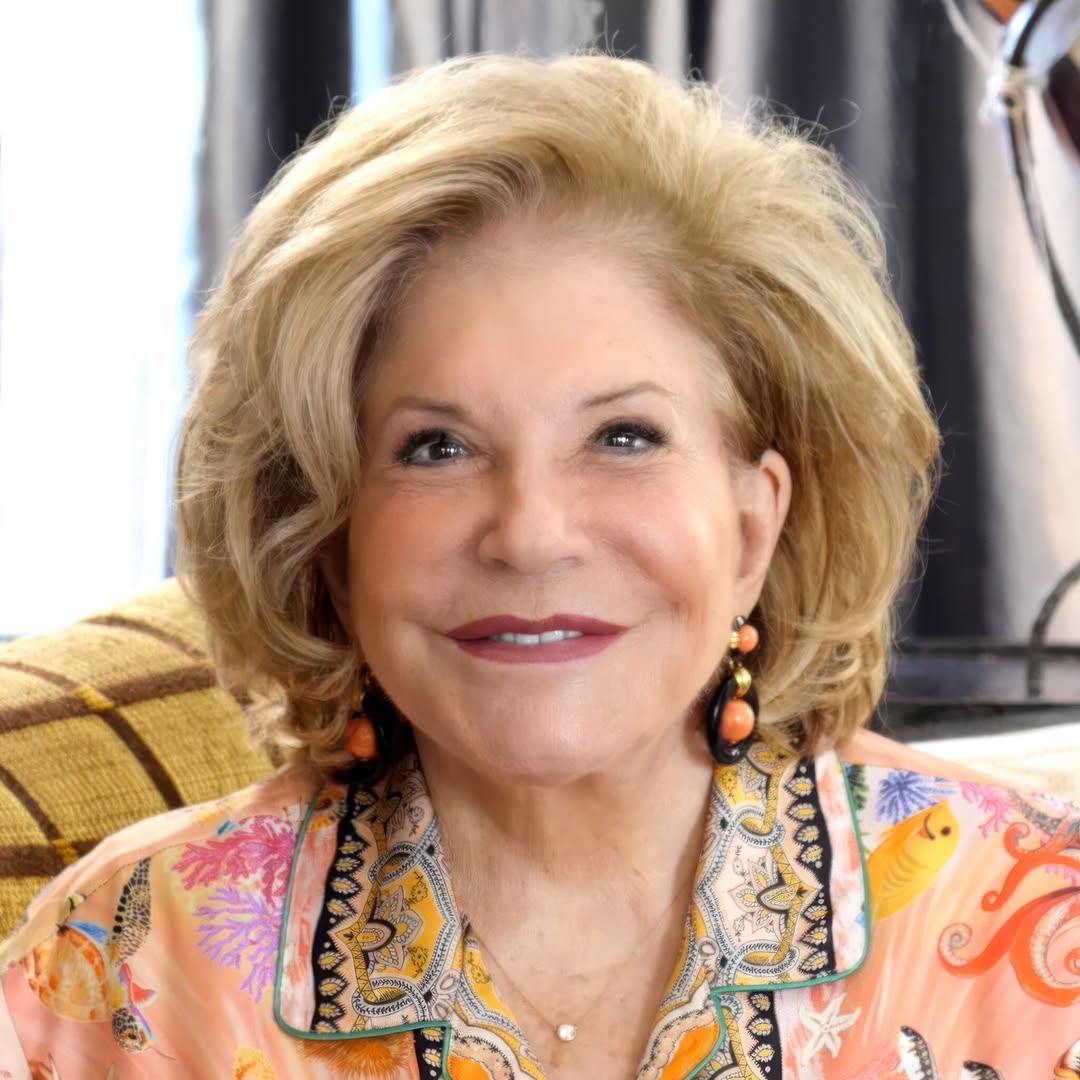
Wallis Annenberg, who passed away shortly after her 86th birthday on July 28th, left behind a legacy that few philanthropists of any era could hope to match. A passionate leader, cultural patron, and unapologetically generous force in Los Angeles, she spent her life championing creativity, compassion, and community. But what often went unsaid, sometimes politely ignored, was that Wallis was also a queer pioneer. In a world that didn’t always make room for women like her, she quietly yet courageously carved out space not just for herself, but for others on the margins, channeling her power and privilege into building a more inclusive world.
Born into one of America’s most influential media families, Wallis Annenberg was raised in Philadelphia with ink practically in her veins. Her father, Walter Annenberg, founded TV Guide and Seventeen, and built a philanthropic legacy as prominent as his publishing empire. After graduating from Pine Manor College in 1959, Wallis dipped a toe into the family business at TV Guide before eventually diving headfirst into the deeper waters of philanthropy. It wasn’t until her father’s death in 2002 that she properly took the reins, steering the Annenberg Foundation into its most impactful era as President and CEO from 2009 until her passing.
Under her leadership, the Foundation funneled a staggering $1.5 billion into a wildly diverse portfolio of causes, from arts and culture to environmental conservation, journalism to gerontology, and yes, even animal overpasses. Her imprint on Los Angeles is practically architectural – the Wallis Annenberg Center for the Performing Arts, GenSpace in Koreatown, PetSpace for animal lovers, the ambitious Wildlife Crossing set to open in 2026, and the science-sparking Annenberg Building at the California Science Center. Her boardroom resume reads like a cultural tour of LA and then some – USC, LACMA, MOCA, the Philharmonic, the Music Center, and Harlem Children’s Zone, to name just a few. In 2022, President Joe Biden awarded her the National Humanities Medal, sealing her place in history as part of the only three-generation family to earn such a distinction, further proof that giving back wasn’t just in the Annenberg bloodline but a full-fledged dynasty.
Most obituaries have captured her vast philanthropic footprint, her roles in the public sphere, and her institutional endowments quite accurately yet have almost entirely glossed over or minimized a central truth: Wallis Annenberg lived as a lesbian woman, and openly supported LGBTQ+ and HIV/AIDS causes with strategically courageous generosity.
To fully and properly honor Wallis is to acknowledge not only her generational wealth and philanthropic vision but also her very much so queer identity: a lesbian woman whose visibility was moderately limited by her time and place yet meaningful when and where it counted. Her sexuality and identity shaped her empathy toward marginalized people.
Ignoring that part of her story perpetuates the ever-constant sanitization of queer public figures, simplifying them into neutered benefactors while erasing the very identity that informed the bulk of their charitable giving. Wallis’s lived experience as a lesbian deserves proper and public acknowledgment not merely as a footnote but as integral to her philanthropy, her community care, and her story – a story layered with courage, complexity, and an undertone of quiet and careful defiance.
Wallis faced addiction head-on, and the recovery journey didn’t just save her – it connected her to journalist Karen Ocamb, who became to Wallis a close companion and confidante. Wallis didn’t shy away from vulnerability and fueled that same vulnerable energy into generosity, building a philanthropic approach shaped by her experience rather than detachment.
Among the many tributes after her passing, it was only Ocamb who celebrated and honored Wallis’ sexuality with clarity and care. In her heartfelt Substack tribute, Ocamb wrote, “Wallis never came out – but she lived out loud, fiercely loving women and channeling her passion into transformative giving.”
Back in 1985, when AIDS was still drenched in stigma and so many people, including health professionals, kept their distance, Wallis stepped forward to co-chair the Commitment to Life dinner. That decision was in no way a headline grab but most certainly was a risk on her part for the time. In a day and age when silence was safest when protecting one’s reputation, Wallis chose to speak out through action. Her courage didn’t need a spotlight. It simply showed up where it mattered most.
Navigating public life came with its own choreography. Wallis maintained what some might call “strategic privacy,” presenting a heteronormative front in certain circles while sharing her life, deeply and authentically, with women in more trusted spaces. It wasn’t about hiding but surviving the era she lived in, and, like so many others, choosing when and how to live freely.
Wallis brought that same intentional care to her philanthropy. While major media celebrated her support for the arts, education, and conservation, far less attention was paid to her contributions to LGBTQ+ elder communities. Initiatives like Gay and Lesbian Elder Housing made a genuine, tangible difference in people’s lives, even if her name wasn’t always highlighted in the coverage.
And through it all, there was Kris Levine—Wallis’s steadfast partner, legally acknowledged near the end of Wallis’s life but largely absent from obituaries. Their relationship, though rarely publicized, was integral. It stood as one more example of how much of Wallis’s real story lived just beneath the surface.
Wallis reshaped what philanthropy could look like. Her leadership turned the Annenberg Foundation toward place-based investments, inclusive community programs, aging and wellness initiatives, and bold infrastructure like GenSpace and the Wallis Center. Her vision made space not just for ideas, but for people too often overlooked. Her presence sent a message, whether spoken or not, that queer women, especially those of her generation, have always helped shape the culture, even when they weren’t given a slot up at the mic.
Wallis Annenberg leaves behind more than just her sprawling physical legacy. She also leaves us with a moral legacy grounded in generosity extended to communities she truly and deeply cared for, in particular the queer community that she was very much so part of. Let us all remember Wallis not only as a philanthropist, but as a queer woman whose identity was at the epicenter of her compassion. Let this tribute stand as an acknowledgment that she was more than her institutions. She was human, nuanced, hidden, and honest. And let it serve as an invitation to future remembrances. I more than dare you to include the truth of sexuality, the courage of love, and the quiet acts of resistance that defined her.
Wallis Annenberg, may your spirit continue to guide all communities – arts, aging, wildlife, and LGBTQ+ – toward a world that you helped shape for the better. Your gifts were vast. Your love was real. And your full story deserves telling.
Obituary
The queer community mourns the loss of trailblazer Jewel Thais-Williams
Founder of Catch One, Thais-Williams became the first Black woman to own an LGBTQ club in the nation.

Jewel’s Catch One nightclub, affectionately referred to by locals as “The Catch,” has been a vital part of the queer and Black communities since its opening in 1973. It was one of the first Black discos in the US, and the first major Black queer bar in Los Angeles. At its helm was pioneer Jewel Thais-Williams, the first Black woman to own an LGBTQ club in the nation. Jewel passed away on July 7th, as confirmed by her sister Carol Williams; she was 86 years old.
Thais-Williams was born in Gary, Indiana, and was brought to San Diego after her family members were drafted into the Navy and stationed in San Diego. After high school, she attended UCLA. Seeing the limited possibilities available to Black women, she believed the only way to acquire wealth was to open her own business, and she started a dress shop with her sister.
She came into her sexuality in her mid-twenties and identified as a lesbian. She experienced firsthand the discrimination towards Black folk at gay clubs and purchased the Diana Club in the Arlington Heights district. She renamed it Jewel’s Catch One, and made history. At the time, women couldn’t tend bar unless they owned it.
After proving herself to the nightclub community, Catch One became a thriving safe space for the queer and Black communities. It also became a go-to spot for celebrity performers, with Janet Jackson, Donna Summer, Whitney Houston, Rick James, Madonna, and more.
Thais-Williams wasn’t just a bar owner; she was an activist. During the AIDS epidemic, she made Catch One available for community meetings. She also served on the board of the AIDS Project LA, co-founded the Minority AIDS Project, and co-founded Rue’s House, providing a safe space for women with AIDS and their children.
During her reign at Catch One, she went back to school and got a Master of Science degree in Oriental Medicine from Samra University. This inspired her to open the Village Health Foundation, a non-profit with a mission to educate lower-income communities on nutrition and healthy living.
Thais-Williams served as the Grand Marshal for the 2016 Los Angeles Pride Festival. In 2019, the intersection directly in front of Catch One was renamed as Jewel Thais-Williams Square. There have been two documentaries paying homage to Thais-Williams and her club, Jewel and the Catch, and Jewel’s Catch One. Footage from Jewel and the Catch was used in the opening sequence of season 3 of Amazon’s Transparent.
This last weekend, Los Angeles Blade was present at Catch One as it served as host to some of the tentpole events of Los Angeles Blade Pride. Executive Director Brandon Anthony shared this statement with the Blade:
With the devastating news of the passing of Jewel Thais-Williams, we honor a true icon and pioneer whose legacy shaped the soul of Los Angeles. For over 40+ years, she stood as a beacon for the LGBTQ community. CATCH ONE offered refuge during the AIDS epidemic, creating safe spaces when none existed, and championed Los Angeles Black Pride with unwavering love, support, and commitment. Her light made room for all of us to shine, and her legacy will forever live on through the mission of LA Black Pride.
California State Assembly member Rick Chavez Zbur also shared this statement:
I’m deeply saddened by the passing of Jewel Thais-Williams—an icon, a trailblazer, and a matriarch of Los Angeles’ Black LGBTQ+ community. Through Jewel’s Catch One, she created a haven of joy and resistance, and through her advocacy, she brought healing to communities devastated by HIV/AIDS. While leading EQCA, I was honored to present her with our Community Leadership Award in 2018. Her legacy lives on in every life she touched. She will be missed.
Catch One’s Instagram posted:
A celebration of her life at Catch One is anticipated; details to follow.
Obituary
Nanette Kazaoka, an unlikely AIDS activist, dies at 83
Member of ACT-UP, longtime social justice advocate
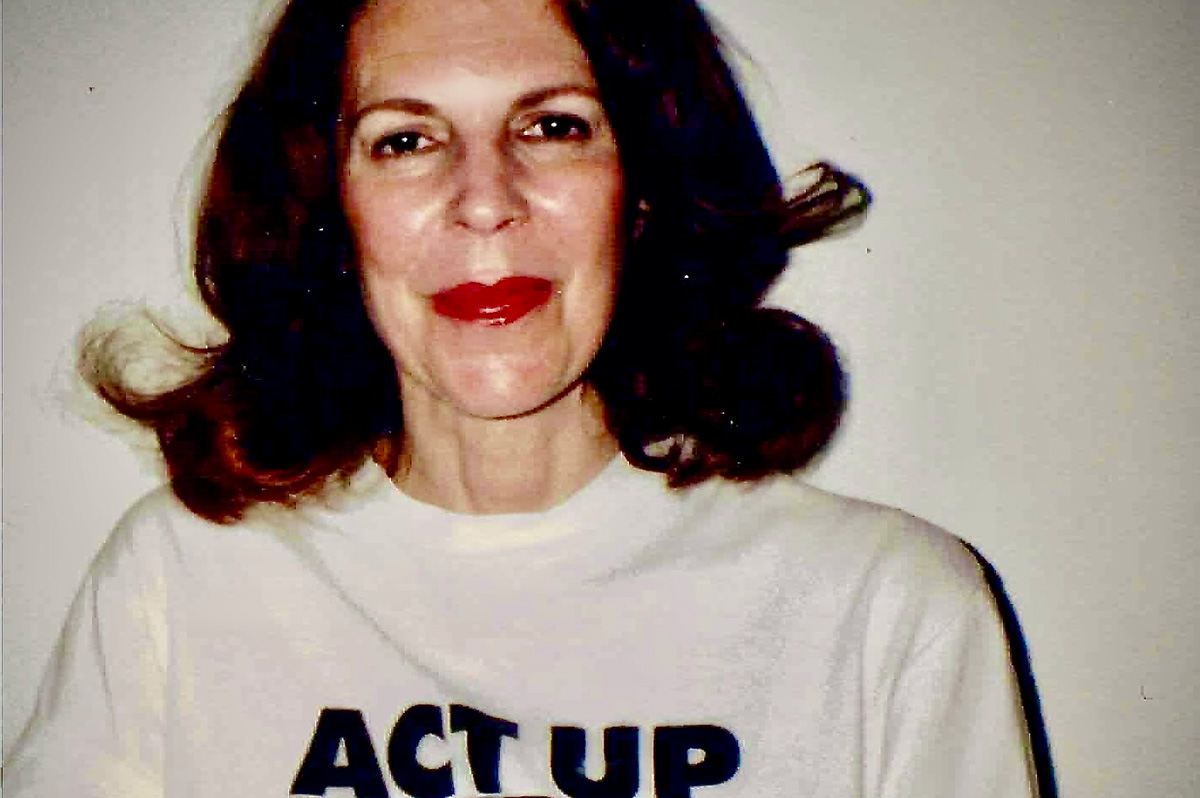
Nanette Kazaoka, a well-known figure in the fight for HIV/AIDS awareness and the rights of marginalized communities, passed away on Oct. 2 at her home in New York City. She was 83. The cause of death was complications from vascular dementia and Alzheimer’s disease, according to a statement from her daughter Kelly Kochendorfer.
Kazaoka was an advocate for justice, particularly in the early days of the AIDS crisis, when she became a member of the AIDS Coalition to Unleash Power, or ACT-Up. She is perhaps best remembered for her participation in a 2004 protest in front of Madison Square Garden during the Republican National Convention, when she and 11 fellow activists staged a dramatic naked demonstration, demanding debt cancellation for impoverished countries, according to a statement from the family.
“Bush, Stop AIDS. Drop the Debt Now!” they chanted, with slogans stenciled in black paint on their bodies. The bold protest drew national attention and underscored the urgency of global debt relief as a key element in the fight against AIDS.
She was born Nanette Natalina Bottinelli on June 12, 1941, in New York City. Her father, Angelo, worked as a waiter at the St. Regis Hotel, while her mother, Betty McComb, was a part-time burlesque dancer.
She married her first husband, Fred Kochendorfer, in 1963, and they had two children together, Kim Skrobe and Kelly, both of whom survive her.
Kazaoka’s journey to Fire Island marked a transformative period in her life. Kochendorfer wanted to live there, and so they began renting in 1967. Kazaoka then made a bold decision that would shape her future: She left her husband for another man and began living on Fire Island in 1968-1969, with the children attending school in Ocean Beach, according to the family’s statement.
This period coincided with the early days of the gay rights movement, as Fire Island was emerging as a hub for LGBTQ culture. Her experiences during these years contributed to the strong sense of activism and solidarity that would later define her role in ACT-UP and the broader fight for LGBTQ rights.
Kazaoka’s second husband, Katsushiga “Kats” Kazaoka, a Japanese-American psychologist who had been interred during World War II, died of cancer in 1984, pushing her to enter the workforce as a receptionist while studying occupational therapy at Downstate Medical Center. By 1990, she had earned her degree and sought work with AIDS patients.
In 1988, a close friend introduced her to ACT-UP, sparking the start of her full-time dedication to AIDS activism, the family said. Kazaoka became known for her passionate, unrelenting activism, whether protesting at City Hall or challenging anti-LGBTQ policies at St. Luke’s Hospital.
Kazaoka’s activism spanned 35 years, making her a beloved and respected figure within ACT-UP and beyond, the family noted. She was featured in Sarah Schulman’s “Let the Record Show: A Political History of ACT-Up New York, 1987-1993” as well as “Act-Up Oral History, No. 162,” a digital history. She was the cover photo of “Fag Hags, Divas and Moms: The Legacy of Straight Women in the AIDS Community,” and was included in The New York Times T Living Magazine story, “LEGENDS PIONEERS AND SURVIVORS.
Her dedication to science continued even after her passing: She donated her brain to the Mount Sinai NIH Brain and Tissue Repository for research to advance the understanding of the human brain health and disease to help end dementia, the family said.
Along with her daughters, Kazaoka is survived by her son-in-law John Skrobe, granddaughter Stella Skrobe and daughter-in-law Christine Arax, all of New York. She and her third husband, Paul Haskell, divorced in 2000.
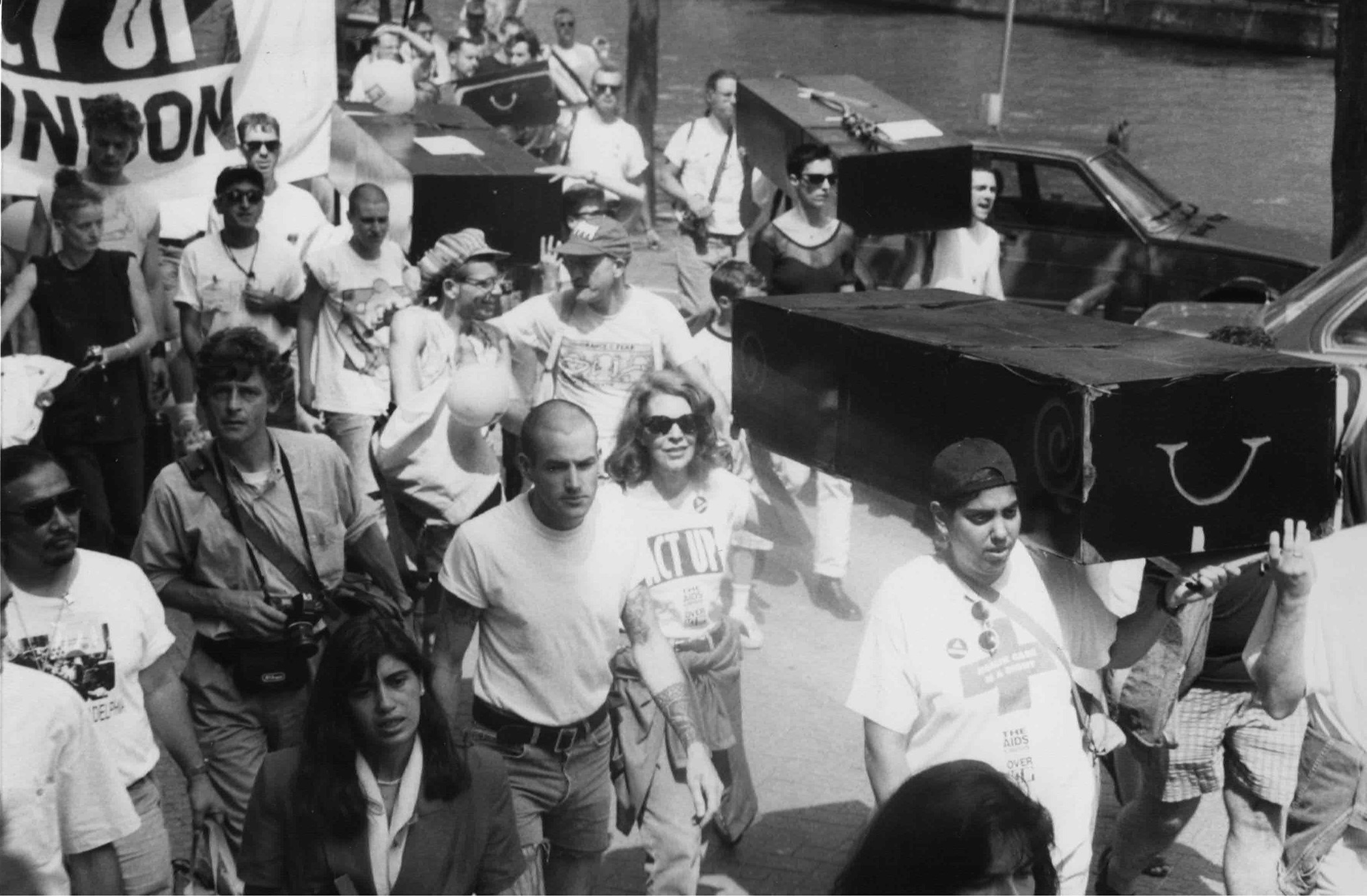
Obituary
Honoring the life and legacy of Coya White Hat-Artichoker
Life-long advocate for Indigenous, two-spirit rights died on Dec. 4
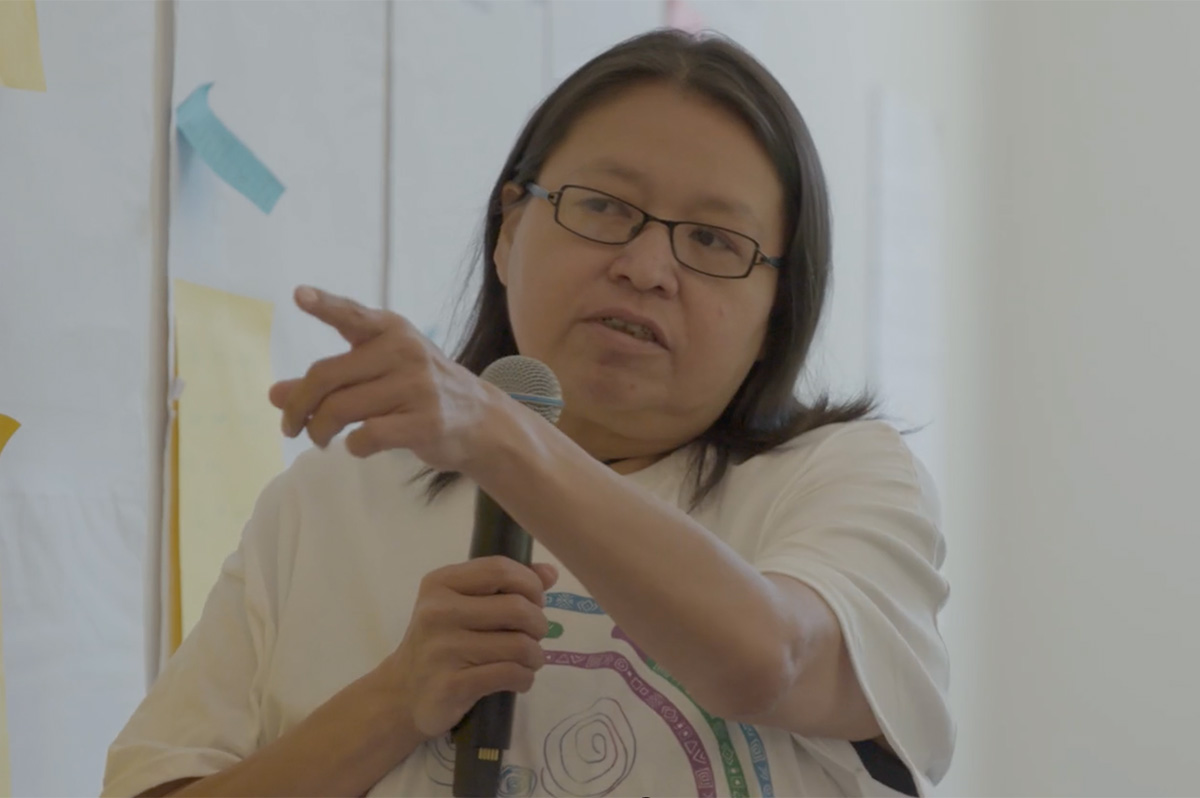
Born and raised on the Rosebud Reservation in South Dakota, Coya was a proud enrolled member of the Sicangu Lakota Oyate or Rosebud Sioux Tribe. From the age of 15, she dedicated her life to advocating for Indigenous and Two Spirit rights, becoming a fierce organizer and a visionary leader in movements for justice. As a founding member of the First Nations Two Spirit Collective, Coya worked tirelessly to uplift Two Spirit youth, support Indigenous reproductive justice, and connect these communities to philanthropic spaces to drive transformative change.
Coya’s advocacy for Indigenous reproductive justice was rooted in a deep understanding of its inseparability from the fight for Indigenous sovereignty. She saw this work as part of a 500-year history of resistance to colonization, weaving together the rights to access abortion, raise children in safe and sustainable environments, steward healthy lands and waters, practice Indigenous cultures, speak ancestral languages, and govern sovereign communities. Recently she served as a board member for SisterSong and the American LGBTQ+ Museum. Coya was a fierce leader who brought dedication and brilliance, impacting gender and reproductive justice efforts around the world.
In 2020, Coya’s visionary leadership brought the world’s first fund dedicated to Indigenous reproductive justice, Building the Fire Fund, into existence. Guided by an Indigenous Advisory Council of women and Two Spirit leaders from across Turtle Island, the fund represents a powerful testament to Coya’s dedication and collaborative spirit. Coya co-authored “Tired of Dancing to Their Song: An Assessment of the Indigenous Women’s Reproductive Justice Funding Landscape” with Zachary Packineau. This seminal report provides a critical roadmap for philanthropy to support and grow the emerging field of Indigenous reproductive justice.
In 2023, Coya brought Building the Fire Fund to Solidaire Network, where we are honored to walk alongside the Advisory Council in advancing this vital work. Coya’s passion, wisdom, and dedication will continue to guide and inspire all of us who were privileged to know her and work beside her.
To honor Coya’s legacy and her vision for the Indigenous reproductive justice movement, we invite you to contribute to the Building the Fire Fund. Your support ensures that her transformative work will continue, lighting the way for generations to come.
Coya White Hat-Artichoker’s life was a powerful testament to resilience, love, and unwavering commitment to justice. While her presence will be deeply missed, her legacy will endure as a beacon of hope and strength for all who carry her vision forward.
Obituary
Gay baseball trailblazer Billy Bean dead at 60
MLB executive was last living former pro player to have come out

He achieved his lifelong dream of becoming a major league baseball player at 23, but Billy Bean gave it all up at 31 because he fell in love with another man. Bean, MLB’s senior vice president for diversity, equity and inclusion, died at home in New York on Tuesday after an 11-month-long battle with acute myeloid leukemia. Major League Baseball announced his death.
Bean was 60, and leaves a husband, Greg Baker.
Bean did not come out publicly until he left the game, in 1999, following an article in the Miami Herald that outed him. That led to even bigger stories in the New York Times and television interviews about being a closeted athlete. He wrote a book, “Going the Other Way.” For decades, Bean was the only living former baseball player to have come out as gay, following Glenn Burke.
Four years ago, Bean recorded an emotional video about coming out and how baseball has changed, titled “Dear Glenn Burke: A Letter from Billy Bean.”
However, the biggest impact Bean had on the game and on all professional sports came in 2014, when he was hired by former Commissioner Bud Selig to be MLB’s first ambassador for inclusion. He spent more than 10 years working for MLB, eventually being promoted to senior vice president.
Bean worked with pro baseball players and their clubs to, in his words, “advance equality for all players, coaches, managers, umpires, employees, and stakeholders throughout baseball to ensure an equitable, inclusive, and supportive workplace for everyone.”
The California native’s athletic career started as a two-time All-American outfielder at Loyola Marymount, then Bean played six seasons of pro ball. He was drafted by the New York Yankees in 1985, but returned to Loyola for his senior year, leading the team to the NCAA Men’s College World Series.
The Detroit Tigers drafted him the following year, and Bean made his debut in 1987 with a four-hit performance that tied a record for a player in his first game. Bean went on to play for the Los Angeles Dodgers, the San Diego Padres, in Japan as well as in the minor leagues.
But he hung up his mitt in 1995, when the lefty outfielder — who at that time was married to a woman — lost his first partner, Sam. He died of HIV-related causes in Bean’s final season. They had fallen in love on a road trip in Miami.
That 1999 Miami Herald article that outed him was a review of the restaurant he co-owned with his partner at that time. He had already told his parents in 1996, but Bean once told the LGBTQ sports site Outsports he still regretted ending his career in the closet.
“If I had only told my parents, I probably would have played two or three more years and understood that I could come out a step at a time, not have to do it in front of a microphone. And I was completely misguided. I had no mentor. I think that’s where the responsibility comes in for people who have lived that experience, and we take for granted that everybody’s adjusted and gets it. I had no one to confide in and that was the biggest mistake of my professional life was to think that if one person knew, everybody knew.
Just having some kind of ally at that time, I think I would have changed and I think I would have played so much better. You can appreciate the degree of despair when you’re hiding something and you’re on the bubble as it is. It just was a really frustrating time for me.”
At MLB, Bean led the charge for baseball teams to hold Pride nights, especially following the COVID-19 pandemic.
“The beginning of Pride month alongside fans returning to our MLB ballparks is tremendously exciting,” Bean told the Los Angeles Blade in June 2021. “The past year has been difficult for everyone, and I am so appreciative that our clubs are able to reach out and support the LGBTQ community in such a positive way.”
The league, baseball teams, his alma mater and LGBTQ advocates and allies posted remembrances and tributes to Bean on social media following news of his passing.
We are deeply saddened by the passing of our friend and colleague Billy Bean, MLB’s Senior VP for Diversity, Equity, & Inclusion and Special Assistant to the Commissioner. Billy, who fought a heroic year-long battle with Acute Myeloid Leukemia, was 60.
Over the last 10 years,… pic.twitter.com/dCfFM6hQlE
— MLB (@MLB) August 6, 2024
We mourn the passing of Billy Bean, a former Dodger and pioneering executive who as MLB’s Senior Vice President for Diversity, Equity & Inclusion truly elevated the culture and spirit of the game he loved. pic.twitter.com/fFykeWFWbi
— Los Angeles Dodgers (@Dodgers) August 6, 2024
We mourn the passing of our friend and former Padre, Billy Bean. He was a great ambassador for equality and inclusion in the game of baseball, and our thoughts are with his loved ones at this very difficult time. pic.twitter.com/D2sFHSVLhO
— San Diego Padres (@Padres) August 6, 2024
The #SFGiants are deeply saddened to learn of the passing of Billy Bean and join the rest of the baseball community in mourning this incredible loss.
We thank Billy for supporting and creating a more inclusive baseball environment and using our collective platform to elevate… https://t.co/tNdMQYCKHk
— SFGiants (@SFGiants) August 6, 2024
We join the entire baseball community in mourning the passing of Billy Bean.
Our hearts go out to the Bean family at this time. 💚💛 https://t.co/6TgKhC5QXp
— Oakland A's (@Athletics) August 6, 2024
The Washington Nationals join Major League Baseball and its Clubs in mourning the passing of Billy Bean.
It was an honor to host him at Nationals Park for our annual Night OUT in 2023, and we thank him for the many contributions he made to our game. pic.twitter.com/8t47tRhhfj
— Washington Nationals (@Nationals) August 6, 2024
The Tigers organization extends its deepest condolences to the family and friends of Billy Bean, who made his Major League debut with the Tigers in 1987 and spent three seasons wearing the Olde English ‘D’. https://t.co/BiB0pKpEbj
— Detroit Tigers (@tigers) August 6, 2024
Billy Bean brought all of his heart to this game. His courage changed baseball for the better, championing inclusivity and belonging.
Thank you for your friendship, energy and inspiration. You made us a better organization. We will miss you. ❤️ https://t.co/blhQNPJ2VO pic.twitter.com/EpBluffmYM
— Red Sox (@RedSox) August 6, 2024
Billy Bean left an indelible mark with his kindness, sincerity and tireless efforts to advance the causes of diversity and inclusion in baseball. The Players Association extends its heartfelt sympathies to his family and friends throughout the game. pic.twitter.com/6KHvcv4ZcR
— MLBPA (@MLBPA) August 6, 2024
The LMU community mourns the passing of Lions baseball legend Billy Bean.
The two-time All-American led the Lions to their sole appearance in the College World Series in 1986.
Bean was inducted into the LMU Hall of Fame in 1992 and will forever be enshrined in Lions lore. pic.twitter.com/QwJbt3Rfhp
— LMU Baseball (@lmulionsBSB) August 6, 2024
I just learned that Billy Bean is now gone on the same day we buried my father. I always loved working with Billy because, former big leaguer that he was, he was committed to finding positive outcomes, ways to win, big or small, for all #LGBTQ athletes. We should all miss him. pic.twitter.com/F3d2EKjAtL
— Christina Kahrl (@ChristinaKahrl) August 6, 2024
It's a sad day for all sports. Baseball Legend Billy Bean, MLB’s Senior VP for Diversity, Equity, and Inclusion and Special Assistant to the Commissioner, has passed away. Billy, who was 60, fought Acute Myeloid Leukemia.
— R.K. Russell (@RKRelentless) August 6, 2024
Heartbroken to hear of Billy’s passing. A kind man with a formidable enthusiasm for creating change. I’m so grateful for all the times our paths crossed over the years. I’ll always cherish the wisdom he so generously shared that helped shape me into the man & advocate I am today. https://t.co/JtSQDKgMh8 pic.twitter.com/MxRjOJRfQX
— Merts (@ConnerMertens) August 6, 2024
Funeral arrangements were not announced as of press time.
Obituary
Out American composer & lyricist Stephen Sondheim dies at 91
Sondheim did not come Out until age 40 & didn’t live with a partner until he was 61 when he was in a relationship with dramatist Peter Jones

ROXBURY, Ct. – The man who was heralded as Broadway and theater’s most revered and influential composer-lyricist of the last half of the 20th century with eight Tony awards alone, Stephen Joshua Sondheim, known for landmark musicals such as “Company,” “West Side Story” and “Sweeney Todd, has died at 91.
Sondheim’s death was announced by his attorney, Rick Pappas. who said that the composer died Friday at his home in Roxbury, Connecticut. The day before Sondheim had celebrated Thanksgiving with a dinner with friends in Roxbury, Pappas added.
Stephen Sondheim, the revered and influential composer-lyricist behind some of Broadway’s most beloved and celebrated shows, has died at 91. https://t.co/LDynQNwHrr
— New York Times Arts (@nytimesarts) November 26, 2021
An online listing of Sondheim’s accolades include nine Tony Awards (including a Lifetime Achievement Tony in 2008), an Academy Award, eight Grammy Awards, a Pulitzer Prize, a Laurence Olivier Award, and in 2015, the Presidential Medal of Freedom bestowed on him by former President Barack Obama.
He has a theatre named for him on both Broadway and the West End in London.
Sondheim has written film music, contributing “Goodbye for Now” for Warren Beatty’s 1981 Reds. He wrote five songs for 1990’s Dick Tracy, including “Sooner or Later (I Always Get My Man)”, sung in the film by Madonna, which won the Academy Award for Best Original Song.
Film adaptations of Sondheim’s work include West Side Story (1961), Gypsy (1962), A Funny Thing Happened on the Way to the Forum (1966), A Little Night Music (1977), Gypsy (1993), Sweeney Todd: The Demon Barber of Fleet Street (2007), Into the Woods (2014), West Side Story (2021), and Merrily We Roll Along (TBA).
Sondheim did not come Out until he was 40 and did not live with a partner until he was 61 when he was in a relationship with dramatist Peter Jones. His current partner, actor-producer Jeff Romley, whom he married in 2017 and he had been living together for over 6 years at the time of the composer’s death.
David LaFontaine, a professor at Massasoit Community College, wrote about Sondheim’s early years and the critical friendship that would end up impacting his life, career, and American Theatre;
“Stephen Joshua Sondheim was born in New York City on March 22, 1930, the only child of affluent parents who divorced when he was ten. He believes he might have succumbed to depression had it not been for a friendship that began in the summer of 1941 with the Hammerstein family, who lived near Sondheim on the bucolic Highland Farm in Bucks County, Pennsylvania.
“Dorothy and Oscar Hammerstein became my surrogate parents during my teen years,” says Sondheim, “and that’s essentially how I became a songwriter, because I wanted to do what Oscar did.” During his four years as a student at the George School, Stevie, as he was then called, often spent entire summers at the Hammerstein farm.”
Oscar Hammerstein II was an American lyricist, theatrical producer, and director in the musical theater for almost 40 years. He won eight Tony Awards and two Academy Awards for Best Original Song. Hammerstein along with his partner composer Richard Rodgers created some of the notable musicals in Broadway history including Oklahoma! (1943), South Pacific (1949), The King and I (1951), and The Sound of Music (1959).
This past September Sondheim was a guest on The Late Show with Stephen Colbert, for a conversation that covers a lot of ground, from “Company” to “West Side Story,” to a new show titled, “Square One.”
Stephen Sondheim Is Still Writing New Works, As “Company” Returns To Broadway
Obituary
First trans mayor, Stu Rasmussen, dies at 73
Rasmussen, who used both he/him and she/her pronouns, became the first trans mayor in the nation’s history
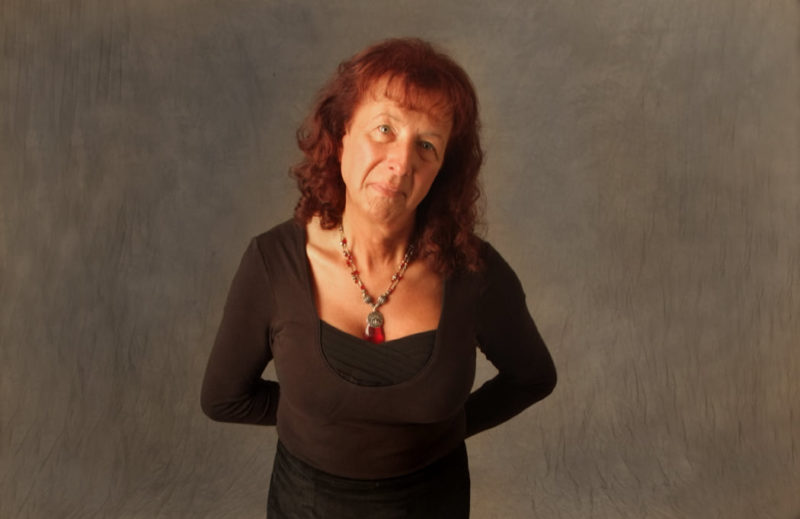
SILVERTON, Or. — Stewart “Stu” Rasmussen, the first trans mayor in the United States, died on November 17 after several weeks under home hospice care battling metastatic prostate cancer. He was 73.
Rasmussen, who used both he/him and she/her pronouns, became the first trans mayor in the nation’s history when he was elected to lead the town of Silverton, Oregon, in 2008, serving until 2014. Before coming out as trans, he served as mayor of the western Oregon town for two terms starting in 1988.
The current mayor of Silverton, Kyle Palmer, took to Facebook to announce the news and offer his condolences.
“Throughout his career as an elected official, Stu advocated for many things on behalf of those who shared his vision for Silverton,” Palmer wrote. “Although citizens can debate their support or lack of support for some of those visions, the time for those conversations has long passed. His volume of service to city government, his role as a longtime downtown business owner, and his impact on the LGBTQ population in Silverton and beyond leaves a huge legacy behind.”
Rasmussen, a self-described “gender anarchist,” leaves behind his partner Victoria Sage, who he began dating in 1974 and married in 2014.
According to Palmer’s Facebook post, Sage noted that “he went bravely into the unknown on his own terms.”
In an email to the Statesman Journal, Sage said that she received many “beautiful and heartwarming” letters from people who said Rasmussen touched their lives.
Born and raised in Silverton, Rasmussen inspired many with his historic 2008 election. His historic 2008 election was covered nationally by People Magazine and Good Morning America. His story was the subject of a stage production in Seattle titled “Stu for Silverton.”
“He set an example for members of our community who needed to see that it was safe to live their lives openly in our community,” said Palmer.
According to Palmer, Westboro Baptist Church, known for anti-LGBTQ+ picketing, protested Rasmussen’s election in 2008. But they were met with a large crowd of Silverton residents — many of them wearing dresses — who supported the mayor, demanding congregation members leave town.
Along with public service, Rasmussen also ran a theater in Silverton for most of his life, “managing to preserve the magic of a small town theater even while showcasing the blockbusters that arrived in the late 70’s and navigating the frustrations of studio restrictions that made it harder and harder to turn a profit,” Palmer noted.
“I’m comforted in the knowledge that he is no longer in pain,” said Palmer.
Obituary
Veteran AIDS activist & TV-film-stage producer Scott Robbe dies at 66
“He was a fearless activist, always on the front lines, whether he was protesting pharmaceutical company greed or homophobia at the Oscars”
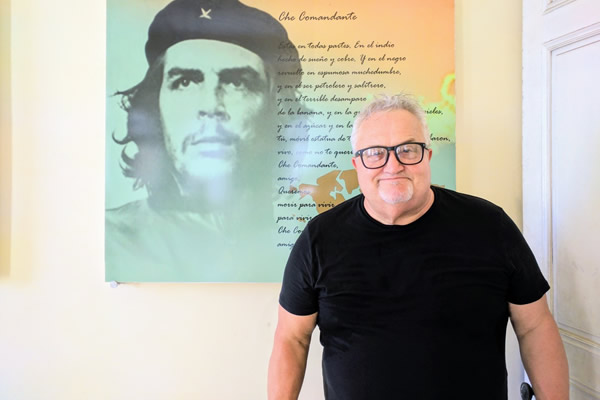
By Jay Blotcher | NEW YORK – Veteran progressive activist and TV-film-stage producer Scott Robbe died on Sunday, Nov. 21, 2021, according to a statement by Paul Algiers, a longtime friend and the executor of Scott Robbe’s estate. Robbe was in hospice care at the home of his sister, Angela, in Hartford, Wis. He was 66.
Robbe died of complications from Myelodysplastic Anemia, a blood cancer he had battled for more than a year. He had undergone stem-cell treatment at Dana-Farber Cancer Institute in Boston in April of this year.
Robbe was a prominent member in the founding of two direct-action groups in New York City: ACT UP and Queer Nation. Robbe was a member of an ACT UP undercover team, led by activist Peter Staley, that secretly gained access to the New York Stock Exchange in September 1989. Their goal was to protest and publicize the record high price of AZT, then the sole approved treatment for HIV/AIDS. Burroughs Wellcome eventually bowed to this nationally publicized activist pressure and lowered its drug price — then the highest in medical history — by 20 percent.
“Scott was a fearless activist, always on the front lines, whether he was protesting pharmaceutical company greed or homophobia at the Oscars,” said ACT UP New York veteran Ann Northrop. “And he was a total sweetheart.”
“Scott was one of those activists who didn’t flinch when our lawyers would warn us of all the possible charges and maximum sentences we’d face for infiltrating a powerful institution,” said Peter Staley, who chronicled his ACT UP days in the new memoir, “Never Silent”. “When it came to fighting for his dying gay brothers, he’d always reply, ‘I’m in.’”
In 1991, Robbe relocated to the West Coast and co-founded Out in Film, a Los Angeles-based group to battle homophobia in Hollywood filmmaking. At the time, several high-grossing films offered stereotypic and unflattering depictions of gay characters, including Jonathan Demme’s “Silence of the Lambs”, Oliver Stone’s “JFK” and Paul Verhoeven’s “Basic Instinct”.
Out in Film demanded equity for LGBTQ people on both sides of the camera. Robbe and Lesbian Avengers member Judy Sisneros created a pioneering protest at the Oscar Awards in March 1991, during which demonstrators outside the Dorothy Chandler Pavilion called for increased queer visibility and fairness in career opportunities.
The Oscars protest was one highlight of a life devoted to progressive activism. It began in his teen years, when Robbe took part in 1960s marches for the environment, for civil rights and against the Vietnam War. Over the four decades that followed, Robbe’s career encompassed both community organizing and producing dozens of works in theatre, film and television.
Scott Douglas Robbe was born on Feb. 16, 1955, in Decorah, Iowa, to Helen, a homemaker, and James Robbe, a construction supervisor. The family relocated to Hartford, Wis., the following year. Robbe was a graduate of Hartford Union High School in Hartford, and entered the University of Wisconsin, Madison, in 1974, where he majored in theater arts. Located in the state capital, the college was known for its progressive student population, and Robbe took part in numerous protests.
After he graduated in 1978, Robbe moved to New York City, where he met his first boyfriend, a Bennington College student. They lived together in the East Village from 1978 to 1984. At the time, Robbe was helping to renovate the Orpheum Theatre on Second Avenue in the East Village. At the same time he produced at the neighboring Entermedia Theatre his first theatrical production, “False Promises” by the San Francisco Mime Troupe. At the famed La MaMa ETC, Robbe workshopped Harvey Fierstein’s “Fugue in a Nursery,” which forms the middle segment of “Torch Song Trilogy.” That production won wide acclaim both there and after it moved to the Orpheum Theater. Robbe also produced several plays off-Broadway, followed by the Harvey Fierstein play “Safe Sex” on Broadway.
Robbe joined ACT UP New York after seeing the group protest at the White House in October 1987 during the Second National March on Washington for Lesbian and Gay Rights. He joined the group’s Media Committee and took part in numerous protests. He also joined the newly-formed Queer Nation in March of 1990, helping to mount demonstrations across New York City aimed at queer visibility. Robbe was diagnosed as HIV-positive in the early 1990s.
In late 1990, Robbe relocated to Los Angeles to produce TV commercials for Japanese television. His first film job was an associate producer role for 1982’s “In the King of Prussia”, depicting the Berrigan Brothers’ pioneering anti-war efforts and starring Martin Sheen.
Robbe’s extensive television credits include the first-ever LGBTQ comedy special for Comedy Central in 1993, called “Out There,” and hosted by Lea DeLaria. Robbe was on the creative team for the groundbreaking 2003 series “Queer Eye for the Straight Guy.” He also produced shows for Lifetime, Comedy Central, VH1, Children’s Television Workshop and American Playhouse.
In 2005, Robbe was named executive director and film commissioner for Film Wisconsin, Inc. During his tenure, Robbe brought 28 TV and film projects to the state, including the 2009 film “Public Enemies” by Michael Mann, starring Johnny Depp and Channing Tatum. Most recently, Robbe worked with activists in Cuba to bring pressure on the American government to distribute the COVID-19 vaccine in the country. Robbe was also involved in grassroots activism in Puerto Vallarta, Mexico, where he had a second home.
Scott Robbe is survived by his mother, Helen, and his siblings and their spouses, Royce (Donna), John (Ken Hall), Jay (Francine), and Angela. Also surviving him are his uncle Peter Coffeen (Steve Getz), as well as several nieces, nephews and cousins.
There will be no funeral. Arrangements were handled by Milwaukee Cremation Society. A celebration of Robbe’s life will be broadcast online early in 2022. Donations in Scott’s memory may be made to Broadway Cares/Equity Fights AIDS and ACT UP New York.
********************
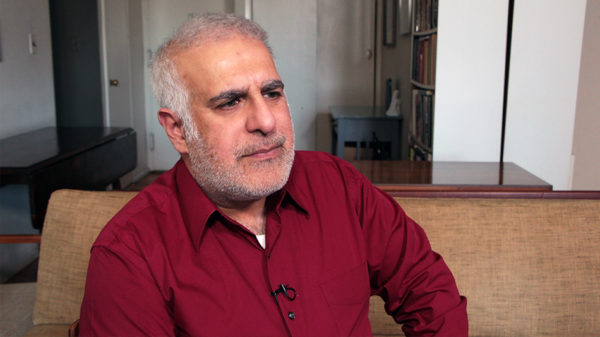
Jay Blotcher is an American activist, journalist, and editor. He was active in the AIDS Coalition to Unleash Power in its early years, serving as chair of the media committee, and was a founding member of Queer Nation.
Photo via ‘I’m From Driftwood’ LGBTQ+ stories video archive.
********************
Obituary
Former PFLAG president Paulette Goodman dies at 88
Beloved LGBTQ community ally grew up in Nazi occupied Paris
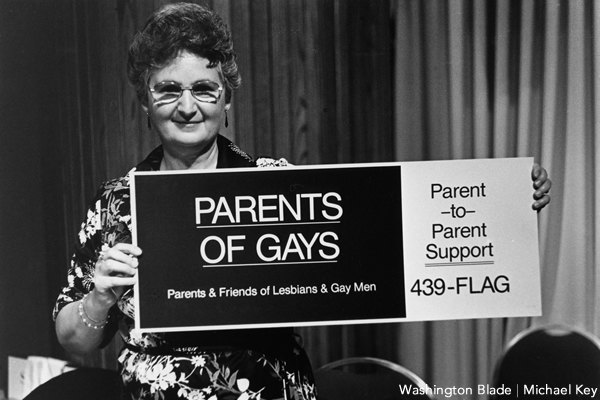
WASHINGTON – Paulette Goodman, a nationally recognized advocate for LGBTQ people and their families in her role as president of the national group Parents, Friends and Families of Lesbians and Gays (PFLAG) from 1988 to 1992 and her earlier role as the lead founder of PFLAG’s Metro DC chapter in 1983, died Aug. 15 of natural causes at her residence at the Riderwood retirement community in Silver Spring, Md. She was 88.
In an Aug. 16 statement, the national PFLAG group said Goodman was born into a Jewish family and grew up in Nazi occupied Paris until the family moved to the United States in 1949. People who knew Goodman have said her experience growing up in an atmosphere of potential danger to her and her family helped shape her response when her daughter came out to her as a lesbian in 1981.
Goodman first became involved with PFLAG in 1981 and helped to found the PFLAG Metro D.C. chapter in 1983, serving as its first president.
During her tenure with the local PFLAG group Goodman counseled families of LGBT people, answered calls on the PFLAG helpline, and led a campaign to display PFLAG ads on D.C. area Metro buses, according to the National PFLAG group.
She later appeared on radio and TV news programs and was the subject of stories in local newspapers, including the Washington Blade, which reported on her efforts to lobby the Maryland General Assembly and the U.S. Congress in support of LGBTQ equality. She also helped to start other PFLAG chapters in Delaware, Maryland, Virginia, and West Virginia.
In its statement on Goodman’s passing, the national PFLAG group points to a 2019 interview that Goodman gave to The Atlantic magazine in which she told how her own upbringing in Nazi occupied France shaped her response to her daughter, Cynthia Goodman’s, coming out.
“When I found out about my gay child, I realized it was the same situation,” The Atlantic quoted her as saying. “You’re guarded about who you are, because you don’t know who’s going to be supportive…I didn’t want my child to go through what I went through – being in the closet is stifling.”
The PFLAG statement says, “It was her understanding, passion, and success with PFLAG Metro D.C…that led PFLAGers to vote her in as president of the national organization.”
The statement notes that in her role as national PFLAG president, Goodman drew national attention to the issues facing LGBTQ people and their families when she wrote to then first lady Barbara Bush to tell of her experience as a parent to a gay child during the peak of the AIDS epidemic. In her letter, she asked Bush to “speak kind words to some 24 million gay Americans and their families, to help heal the wounds and to keep these families in loving relationships.”
In a development that created a stir in Republican political circles and the White House, Bush responded with her own letter, which stated, “I firmly believe that we cannot tolerate discrimination against any individuals or groups in our country. Such treatment brings with it pain and perpetuates intolerance.”
According to the PFLAG statement, Bush’s letter, which was inadvertently given to the Associated Press, caused a “political maelstrom” but was possibly the first gay-positive comment to come from the White House during the administration of President George H.W. Bush.
In her later years, the PFLAG statement says, Paulette Goodman retired but continued her advocacy work by, among other things, starting the first-ever chapter of PFLAG at her retirement home at Riderwood in Silver Spring along with a fellow PFLAG member.
In 2013, Goodman received recognition of her work with PFLAG from officials in Montgomery County, Md., where she lived, and from then Maryland Gov. Martin O’Malley. She received numerous other honors of recognition from organizations that include the Human Rights Campaign, the Association of Gay and Lesbian Psychiatrists, the Greater New York Bar Association for Human Rights, and the LGBTQ Catholic group Dignity Washington.
“Paulette Goodman showed the world what it means to be a loving PFLAG parent and ally,” said PFLAG National Executive Director Brian K. Bond. “PFLAGers everywhere can look to her as a role model, for once she went through her experience with her own child and got the support she needed, she used that experience to educate others and then advocate for the wellbeing and equality of all LGBTQ+ people,” Bond said.
“She was the embodiment of what we tell PFLAG members,” said Bond. “Once you no longer need PFLAG, PFLAG needs you,” he said. “PFLAG needed – and was so lucky to have – Paulette Goodman. Our hearts are with her family and all who knew and loved her.”
Goodman was predeceased by her husband, Leo Goodman. She is survived by her daughter Cynthia Goodman and son Claude Goodman and his wife Toni Goodman; her grandson Max Goodhart and his wife Laurel Goodhart; her granddaughter Hannah Goodman; her niece Sue Einhorn; and her longtime friends Millie Spector, Tom Bull, David Feltman, and Peter Froehlich.
No immediate plans were announced for a memorial tribute or funeral arrangements.
Obituary
First United States Gay Ambassador James C. Hormel dies at 88
“Jim Hormel was a barrier-breaking public servant, champion for LGBTQ equality, and cherished friend who will be dearly missed.”
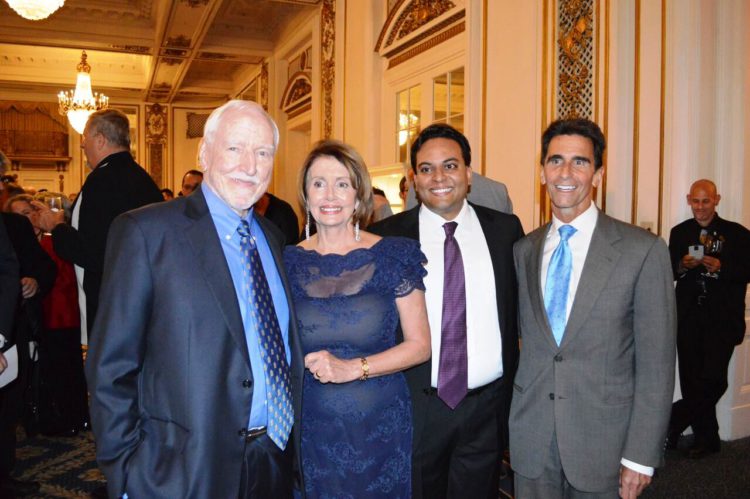
SAN FRANCISCO – The first openly gay diplomat appointed as the United States Ambassador to Luxembourg in 1999 by President Bill Clinton, has died at 88. James C. Hormel, heir to the Hormel meatpacking fortune, was a longtime philanthropist who parlayed his financial interests and contributions as a longtime Democratic Party activist and donor, into actively pursuing LGBTQ+ equality and civil rights.
“We are deeply saddened by the passing of Ambassador Jim Hormel. Jim devoted his life to advancing the rights and dignity of all people, and in his trailblazing service in the diplomatic corps, he represented the United States with honor and brought us closer to living out the meaning of a more perfect union,” former President Bill Clinton and his wife, former U.S. Secretary of State Hillary Clinton said in a joint statement. “We will always be grateful for his courageous and principled example, as well as the kindness and support he gave us over so many years. Our thoughts are with his family and all who loved him.”
Hormel’s work as an openly gay supporter for equality led to his being one of the founders of the Human Rights Campaign Fund along with fellow native Minnesotan Steve Endean. In 1995 the organization was renamed the Human Rights Campaign.
A long time San Franciscan, Hormel served as a member of the board of directors of the San Francisco Chamber of Commerce and the American Foundation for AIDS Research. He also founded and funded the James C. Hormel LGBTQIA Center located at the San Francisco Public Library.
Two notable national Democratic Party political figures and fellow San Franciscans, U.S. Senator Diane Feinstein and U.S. House Speaker Nancy Pelosi reflected on Hormel’s long service.
Sen. Feinstein’s statement read in part, “San Francisco lost a great friend today. A philanthropist, civil rights pioneer and loving spouse and father, James Hormel lived an extraordinary life and will be deeply missed by many, Feinstein said. I had the pleasure of working closely with him on several issues, most notably on the 1984 Democratic National Convention in San Francisco. Tapped to be the ambassador to Luxembourg by President Clinton in 1997, he was the first openly gay person to serve as an ambassador. While his nomination was controversial at the time, his service was distinguished and helped advance LGBTQ rights both at home and abroad.”
House Speaker Pelosi released a statement praising Ambassador Hormel’s commitment to advancing LGBTQ+ Equality rights.
“Jim Hormel was a barrier-breaking public servant, champion for LGBTQ equality, and cherished friend who will be dearly missed in San Francisco, in our nation and around the world. Jim Hormel made history as the first openly gay U.S. ambassador, showing the world how the voices of LGBTQ Americans are integral to foreign policy, and paving the way for a new generation of leaders,” said Pelosi. “With his gentle yet powerful voice and undaunted determination, Jim made it his mission to fight for dignity and equality for all. Paul and I are heartbroken at this tremendous loss, and hope it is a comfort to his husband, Michael, and his children Alison, Anne, Elizabeth, James Jr. and Sarah, that Jim’s extraordinary life continues to serve as a beacon of hope and promise for LGBTQ children across our country and around the world.”
Born at the height of the Great Depression in January of 1933, Hormel, the grandson of Hormel Foods founder George A. Hormel, earned his bachelor of Arts Degree from Swarthmore College in suburban Philadelphia and later a law degree from University of Chicago Law School. He later served as the school’s Dean of Students and Director of Admissions.
Hormel’s Democratic Party activism coupled with his dedicated efforts to advance the cause of LGBTQ equality led to a chance dinner conversation in 1992 with then candidate Bill Clinton’s campaign treasurer, Bob Farmer.
Cynthia Laird, the editor of The Bay Area Reporter, San Francisco’s LGBTQ newspaper noted Hormel’s recounting that conversation which was originally published in B.A.R. in 2016;
Over dinner, Farmer suggested to Mr. Hormel that he seek a presidential appointment as an ambassador.
“I was quite surprised when he brought up the idea,” said Mr. Hormel, noting that over 60% of such positions are held by career employees who have come up through the ranks in the Foreign Service.
The appointment did not happen easily, Mr. Hormel recalled.
In fact, it wasn’t until five years after that dinner that Clinton nominated Mr. Hormel for the job. During that period, recalled Mr. Hormel, he made “dozens of visits and hundreds of phone calls” to keep his name in consideration.
Mr. Hormel said he was persistent because, if appointed, “I would break a ceiling and make it easier for gay people to serve at the highest levels of government.”
Initially, Hormel was considered for an ambassadorship to Fiji by the Clinton White House, but according to published accounts in the Washington Blade, D.C.’s LGBTQ newspaper and the Washington Post in December of 1994, his name was withdrawn from consideration in part due to objections from conservatives in both parties on Capitol Hill and the government of Fiji itself.
The Washington Blade’s Lou Chibbaro reported; “The action on Hormel also comes after members of the moderate and conservative wings of the Democratic Party have said the stunning defeat last month of Democratic members of Congress was due, in part, to Clinton’s support for Gay civil rights in general and Gays in the military in particular.“
Fijian officials had protested in part because same-sex intimate sexual relations were a crime punishable by long prison sentences and Hormel’s status as an openly gay man ran counter to the principles of “Fijian Culture” they claimed.
“Hormel’s nomination as ambassador to Fiji would be “dead in the water,” said one source familiar with the controversy, who spoke on condition of anonymity,” the Blade reported. “The source said Helms made it clear through intermediaries that he would bottle up Hormel’s nomination in committee.
The Blade also reported that; “The only reason Jim Hormel did not get the job was because he is Gay,” said one Gay activist leader, who spoke on condition that he not be identified.”
The Clinton Administration according to the Washington Post then explored another appointment for Hormel that would not require Senate confirmation. One option under consideration, the Post reported, was a position in a delegation to an international conference on social justice issues in Copenhagen. Another possibility, the Post said, was participation by Hormel in the United Nations commission on human rights in Geneva.
President Clinton ultimately named Hormel as a member of the United States delegation to the United Nations Human Rights Commission in 1995, and in 1996 Hormel was named an alternate U.S. representative at the United Nations General Assembly.
The following October of 1997, the president nominated Hormel as his choice to be the U.S. Ambassador to the principality of the Grand Duchy of Luxembourg. While the Senate Foreign Relations Committee approved his nomination with the exceptions of Republican conservative Senators Jesse Helms and John Ashcroft opposed, the battle in the Senate which got progressively uglier as contentious portions of Hormel’s philanthropic and activist work were derided by more conservative Republicans and the powerful political foes of LGBTQ+ equality rights.
Those groups included the Southern Poverty Law Center’s designated extremist anti-LGBTQ hate groups, the Washington D.C. based Family Research Council and the Orange County, California based Traditional Values Coalition Christian organization founded by Rev. Louis P. Sheldon to oppose LGBTQ+ rights.
In a Wikimedia entry on Hormel it notes that FRC and TVC both:
- Labelled Hormel as being pro-pornography, asserting that Hormel would be rejected in the largely Roman Catholic Luxembourg. It was later observed that much of the same material could also be found in the Library of Congress.
- The FRC distributed video tapes of a television interview with Hormel at the 1996 San Francisco Pride parade in which Hormel laughed at a joke about the Sisters of Perpetual Indulgence, a group of men who dress in drag as nuns to mock religious conventions, as they passed by. The Catholic League took this as an indication of approval of what they characterized as an anti-Catholic group. In a meeting with Tim Hutchinson, Hormel declined to repudiate the Sisters. In an interview years later, Hormel objected to the idea that the video clip showed that he approved of the group and that he was anti-Catholic.
- It was revealed that Hormel had contributed $12,000 to fund the production of the It’s Elementary: Talking About Gay Issues in School, a video aimed at teaching tolerance of homosexuality to grade-school students. This especially inflamed Senator Bob Smith of New Hampshire, who was portrayed unflatteringly in the film. Smith contended that he opposed Hormel not because he was gay but because of his “advocacy of the gay lifestyle”.
Ultimately after Republicans were successful in stalling Hormel’s nomination, preventing a vote which was orchestrated by then Senate Majority Leader, Mississippi Republican U.S. Senator Trent Lott, President Clinton in May of 1999 in a recess appointment made Hormel the U.S. Ambassador to Luxembourg.
The Washington Post reported, “Bypassing Senate confirmation, President Clinton moved yesterday to directly install gay San Francisco businessman James C. Hormel as ambassador to Luxembourg.
The president invoked a provision of the Constitution allowing him to make such appointments during a congressional recess. Hormel, who will become the first openly gay U.S. ambassador, can serve in the post through the end of 2000.
The “recess appointment” drew criticism from a spokesman for Senate Majority Leader Trent Lott (R-Miss.) and conservative groups but was praised by gay rights activists.
“The denial of a confirmation vote by the Senate leadership, a vote he would have easily won, was nothing more than anti-gay discrimination,” said Elizabeth Birch of the Human Rights Campaign, the nation’s largest gay and lesbian political group to the Washington Post.
The Post also reported that Clinton’s recess appointment of Hormel was criticized by Lott spokesman John Czwartacki who said it was “a slap in the face,” particularly to Catholics.
Czwartacki cited what he said were Hormel’s links with the Sisters of Perpetual Indulgence — drag queens who dress as nuns.
White House spokesman Barry Toiv said Hormel does not support “any such group. The idea . . . is outrageous and is false.”
The Family Research Council claimed that Hormel’s appointment was strictly to “advance the gay agenda.” on what the anti-LGBTQ+ hate group deemed a “a government-sanctioned platform.”
Hormel went on to serve as ambassador until the inaugural of President George W. Bush on January 20, 2001.
After his service as ambassador Hormel returned to his philanthropic work moving back to the City by the Bay where he was honored in 2010, with a lifetime achievement grand marshal for the San Francisco Pride parade.
Hormel also continued his lifelong advocacy work and as an elder statesmen in the Democratic Party. When then President-elect Joe Biden announced his choice of nominating openly out Pete Buttigieg as U. S. Secretary of Transportation, the Washington Blade’s White House reporter Chris Johnson reported, “Buttigieg, who made history as a gay Democratic candidate in the 2020 primary said at the time his career aspiration was to become an airline pilot and “was a long way from coming out, even to myself,” but gained knowledge from Hormel’s story.”
The Blade also reported; “I learned about some of the limits that exist in this country when it comes to who is allowed to belong, and just as important, I saw how those limits could be challenged,” Buttigieg said. “So, two decades later, I can’t help but think of a 17-year-old who might be watching right now, someone who wonders whether and where they belong in the world, or even in their own family, and I’m thinking about the message today’s announcement is sending to them.”
Hormel, in an email to the Blade the day after Buttigieg praised him, was able to return the favor by offering support.
“I enthusiastically support the nomination of Pete Buttigieg as secretary of transportation and will acknowledge him as the first openly LGBTQ member of the presidential Cabinet,” Hormel said.
“Today we mourn the loss of a true titan in our LGBTQ+ movement — a trailblazer, a mentor and a friend to all those who sought his counsel during his decades of leadership and advocacy. Ambassador James Hormel defined our community’s resilience — representing our nation with honor and distinction in the face of vile hate and discrimination,” Executive Director of Equality California’s Rick Chavez Zbur said in a statement. “In the years since his diplomatic service, Jim has been unyieldingly generous with his time and his resources, working tirelessly to create a world that is healthy, just and fully equal for all LGBTQ+ people.
“It is true that we stand on the shoulders of the giants who came before us. I am forever grateful for the wisdom and guidance that Jim shared with me and Equality California over the past 25 years, and I am confident that generations of LGBTQ+ diplomats, advocates and community leaders will benefit from his life’s work. I know that we will continue to see the immeasurable impact of his contributions on the faces of children who dream of walking the world’s greatest halls of power without worry that who they are or whom they love could ever limit their potential.”
The White House Friday afternoon released a statement by Vice President Kamala Harris on the death of Ambassador Hormel;
“During his remarkable life, Ambassador James Hormel made history – and he made the world a better place. Jim’s kindness and commitment to human rights, including his efforts to help found the Human Rights Campaign and advocate for those living with HIV/AIDS, changed lives and inspired generations of leaders. As our country’s first openly gay ambassador, Jim’s distinguished service represented the very best of America and paved the way for others. I will always be grateful for Jim’s friendship and counsel over many years. He will be missed. Doug and I send our condolences to Jim’s husband Michael, children Alison, Anne, Elizabeth, Jimmy, and Sarah, and grandchildren and great-grandchildren.”
President Biden, reflecting the recent passing of James Hormel, the first openly gay person to serve as U.S. ambassador gay person to the United States, said his “bravery paved the way” for LGBTQ appointees now working for the U.S. government.
“I am proud that my Administration is staffed by incredible LGBTQ+ public servants at all levels, including in my Cabinet and nominees for Ambassador-level appointments,” Biden said. “Ambassador Hormel’s bravery paved the way for all of them to serve, just as he hoped it would.”
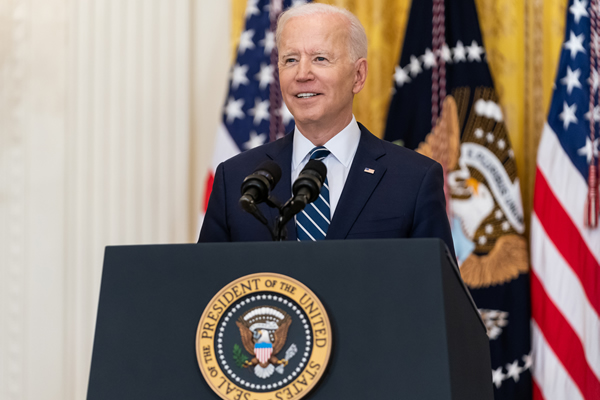
Biden made the remarks in a statement late Friday following the death of Hormel, whom former President Clinton appointed as U.S ambassador to Luxembourg by recess appointment in 1999.
Statement by President Joe Biden on the Passing of Ambassador James Hormel
Ambassador Hormel was a man of incredible dignity and backbone, a national leader in the fight for LGBTQ+ equality, an early advocate for those suffering from HIV/AIDS, and a ground breaking diplomat who helped America to lead by the power of our example.
Ambassador Hormel put himself on the line to become our nation’s first out gay Ambassador in the face of unwarranted and hurtful opposition. I remember well the historic fight for his appointment, and I was proud to support his confirmation. He helped shine a national spotlight on the truth that no LGBTQ+ individual should be denied their basic human rights, and that the United States should be the global leader in that fight.
Today, I am proud that my Administration is staffed by incredible LGBTQ+ public servants at all levels, including in my Cabinet and nominees for Ambassador-level appointments. Ambassador Hormel’s bravery paved the way for all of them to serve, just as he hoped it would. Jill and I send our deepest condolences to Ambassador Hormel’s husband, Michael, his children and grandchildren, and all those mourning his loss.
Hormel is survived by his husband Michael and his children Alison, Anne, Elizabeth, James Jr. and Sarah.
Additional reporting from Lou Chibbaro, Chris Johnson, The Bay Area Reporter, and The Washington Post.
-

 LGBTQ+ RESOURCES5 days ago
LGBTQ+ RESOURCES5 days agoHope on the other side: How Rainbow Railroad rescues LGBTQI+ people at risk around the world
-
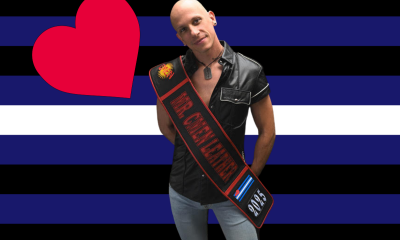
 Features2 days ago
Features2 days agoHarnessing identity: Mr. CMEN Leather 2025 bares his heart and soul
-
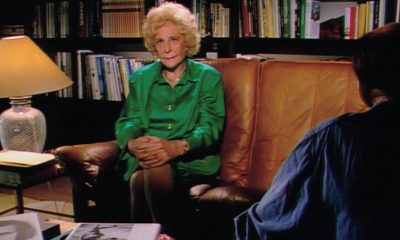
 Movies4 days ago
Movies4 days agoIntensive ‘Riefenstahl’ doc dives deep into a life of denial
-

 Books4 days ago
Books4 days agoThese four intertwined stories will leave you flabbergasted
-

 Events2 days ago
Events2 days ago“We are glimmers of hope”: LGBTQ+ advocates deliver powerful speeches defending queer rights at Equality Awards
-
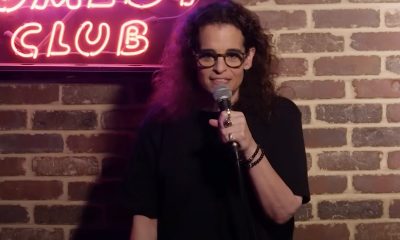
 Celebrity News17 hours ago
Celebrity News17 hours agoLesbian comedian who performed in Saudi Arabia apologizes
-

 Miscellaneous2 days ago
Miscellaneous2 days agoTiffany ‘New York’ Pollard Dishes on queer storytelling in her new show ‘Slayers: Wheel of Fate’
-

 Events15 hours ago
Events15 hours ago“Butterflies are free. Humans deserve to be free too.” Queerceañera honors local queer Latine community
-

 National21 hours ago
National21 hours agoLGBTQ rights on the line: What to watch as Supreme Court’s new term begins
-

 Events20 hours ago
Events20 hours agoThe Los Angeles Blade Partners with AJSOCAL to host gala uplifting AAPI joy and resistance

